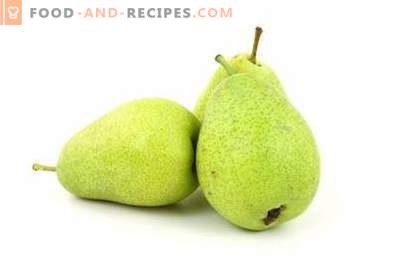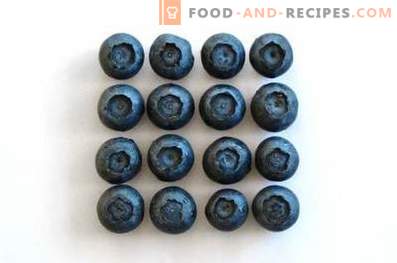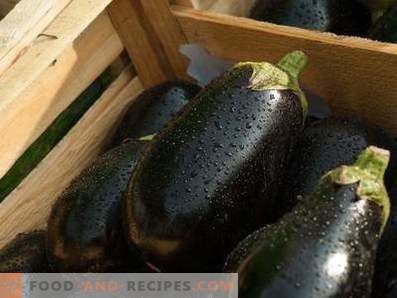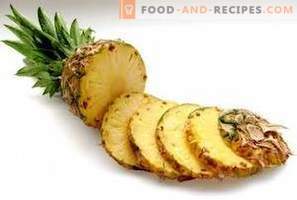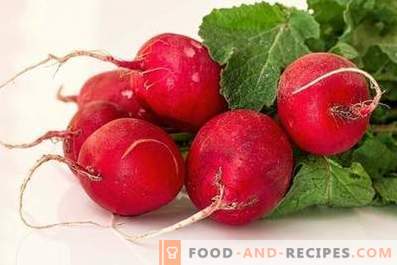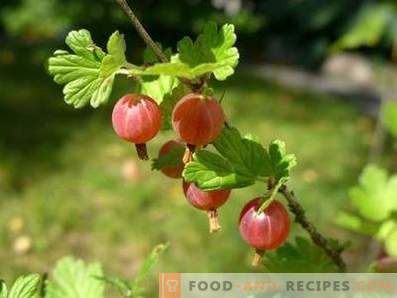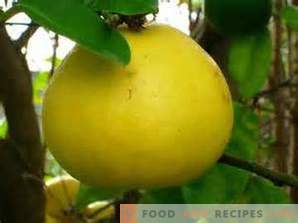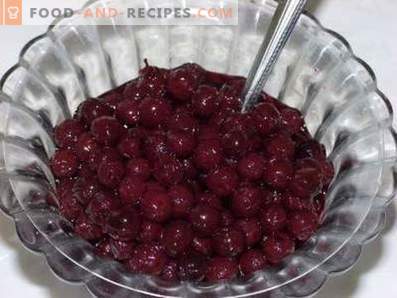
Pomelo is an evergreen plant belonging to the genus of citrus. The homeland of this species is the islands of Fiji and Tonga, the territory of Southeast Asia, Malaysia. In China, the first mention of pomelo dates back to 100 BC. er In Europe, this fruit appeared much later - in the middle of the XIV century. Today, the largest producers and suppliers of pomelo fruit to the international market are China and Thailand. In addition, the plant is cultivated in Japan, India, Israel, Indonesia and Vietnam.
Pomelo is a tree with a crown of spherical shape, reaching a height of 16 meters. The branches of the plant are covered with small, but sharp spines. Egg-elongated leaves of pomelo are glossy, smooth on top and slightly pubescent from below. Leaf plates reach 200 mm in length and 80-90 mm in width.
Pomelo blooms and bears fruit twice a year. White flowers of representatives of this species, reaching a diameter of 7 cm, can grow separately or gather in corymbose inflorescences of 6-8 pieces. Pomelo fruits are considered the largest among citrus fruits: their weight can exceed 9 kg, and diameter - 29 cm. Ripe fruits have a spherical, pear-shaped or oval shape, as well as a thick peel, whose color can vary from pale green to rich yellow. The flesh of the pomelo, having a sweet-sour taste with a slight bitterness, is divided by rigid partitions into large slices. Inside each of these lobules there are 5-6 seeds. For ripening fruit takes from 5 to 7 months.
Pomelo is the most important component of most Chinese and Thai dishes. So, on the basis of it, they cook generously pepper salad yam som-o and baskets miang som-o, an excellent appetizer with the addition of shrimp som-o song khmang. In addition, the fruit pulp is served to the table with hot sugar-pepper sauce. In the west, pomelo is consumed raw, made from it marmalade, soft drinks, fruit salads and fillings for baking (cakes, cookies, pies). The pulp of this fruit is added to the sweet and spicy sauces served to the table along with meat or fish. Pomelo rind is used to make candied fruits.
Nutritional value of pomelo and vitamins in its composition
Nutritional value 100 g pomelo:
- 0, 791 g of proteins;
- 9, 573 g of carbohydrates;
- 0, 998 g of fiber;
- 89, 084 g of water;
- 0, 476 g of ash.
Vitamins and provitamins per 100 g of pomelo:
- 9, 414 μg of beta cryptoxanthin (carotenoid);
- 0, 033 mg of thiamine (B1);
- 60, 114 mg of ascorbic acid (C);
- 0.037 mg of pyridoxine (B6);
- 0, 212 mg of niacin equivalent (PP);
- 0, 026 mg riboflavin (B2).
Calorie content of pomelo
- Energy value of 100 g of pomelo - 37, 843 kcal.
- The calorie content of a single fruit of medium size pomelo (900 g) is 340, 587 kcal.
Useful elements in the composition of pomelo
Macroelements in pomelo (in 100 g pulp):
- 215, 688 mg of potassium;
- 3, 974 mg of calcium;
- 5, 787 mg of magnesium;
- 0, 919 mg of sodium;
- 16, 799 mg of phosphorus.
Trace elements in pomelo (per 100 g pulp):
- 0, 108 mg of iron;
- 0, 016 mg of manganese;
- 079 mg zinc;
- 47, 634 mcg copper.
How to choose and store a pomelo?
Today pomelo can be bought at any store. When choosing, it is necessary to remember that a truly high-quality and ripe fruit of this plant has:
- a pronounced citrus scent that can be felt even from a distance;
- smooth and elastic skin without seals, burgundy circles, spots and damage.
Pomelo is better to buy in February - it is at this time that its natural maturation occurs. The fruits of this plant can be stored in the refrigerator compartment for up to 4 weeks. Peeled fruits are fit for human consumption for 48 hours.
Useful properties of pomelo
- Pomelo is a low-calorie fruit that can be safely included in the dietary menu when dealing with overweight. Vitamins of group B, present in the pulp of this fetus, accelerate metabolic processes in the body, indirectly contributing to fat burning and weight loss.
- Pomelo is one of the richest natural sources of ascorbic acid. In order to fill the daily need for vitamin C, it is enough to eat 150 g of the pulp of this fruit. Regular consumption of pomelo and dishes based on it helps to strengthen the immune system, helps the body to resist infections and recover from serious stress (physical, mental) and debilitating diseases.
- The pomelo contains ethacrynic acid, which makes it possible to use the pulp of its fruit as a diuretic.
- Enzymes present in the composition of pomelo have a positive effect on the gastrointestinal tract, stimulate the production of digestive juices. An effective remedy to cope with indigestion and intestinal upset is a decoction of bitter veins, dividing the pulp of the fruit into slices.
- The daily inclusion of the pulp of this fruit in the diet is one of the most effective preventive measures for beriberi.
- Substances found in the composition of pomelo have a positive effect on the state of the vessels. With regular consumption of these fruits in food, the vascular walls become stronger and more elastic, blood circulation processes are normalized, the risk of blood clots and the development of cardiological diseases is reduced.
- Pomelo juice has anti-inflammatory properties. In Thai alternative medicine it is used in the treatment of inflammatory diseases of the urinary tract.
- The compounds present in the pulp of the pomelo have the ability to regulate blood pressure. Traditional healers recommend that hypertensive patients once a week include in the diet the fruits of this plant.
- Vitamins of group B and useful elements, which are contained in the pomelo, normalize the functioning of the nervous system. Nutritionists advise people suffering from depression, constantly in stressful situations, experiencing psycho-emotional upheavals, who notice increased irritability and nervousness, to include at least 2 times a week into their diet dishes from its fruits. The flesh of the pomelo is also useful for people who have difficulty falling asleep or who notice other signs of the development of somnological diseases.
- Substances present in the composition of pomelo accelerate the process of excretion of harmful cholesterol. People who regularly consume the pulp of these fruits are least susceptible to the development of atherosclerosis.
- Pomelo contains a whole range of compounds with antioxidant properties. Regular consumption of its pulp is one of the measures to prevent cancer.
- Vitamins and minerals present in the pomelo composition slow down the aging process.
- The pomelo contains substances that stimulate the excretion of toxins and poisons, which weaken the symptoms of intoxication. In China, the pulp of these fruits is used to treat alcohol poisoning.
- According to nutritionists, regular consumption of pomelo helps improve performance and physical endurance.
Cosmetic tonics and masks from pomelo
- Freshly squeezed pomelo juice is used as a cosmetic tonic, which improves skin tone and saves them from oily shine. The agent is impregnated with a cotton pad and wipe their face with it in the morning and before bedtime. For the treatment of skin prone to increased fat content, use the juice in its pure form, and for dry - half diluted with cool water.
- An effective moisturizing and rejuvenating facial mask is prepared from pomelo. The pulp of the fruit (50 g) is ground in a mortar and 7 g of lemon juice, 7 g of oatmeal and 10-12 g of honey are added to the resulting gruel. The mixture is stirred and applied to the face, bypassing the nasolabial triangle and the areas around the eyes. After a quarter of an hour, the mask is washed off.
- From the pulp of the pomelo, they prepare a nourishing mask for oily skin. One slice of the fruit is cleaned of partitions, ground in a mortar and combined with defatted kefir (10 g). The agent is impregnated with a cotton disc, wipe their face with it and wait 10 minutes. Then the mask is applied to the skin in an even layer, bypassing the areas around the eyes and lips. After 11-13 minutes, the mask is washed off.
Harmful properties of pomelo and contraindications to its use
- The main contraindication to the use of pomelo is individual intolerance. People who are allergic to other citrus fruits should also be careful when including pomelo in their diet.
- It is forbidden to consume pomelo with excess acidity of gastric juice, nephritis, hepatitis, as well as exacerbation of duodenal ulcers and stomach.
